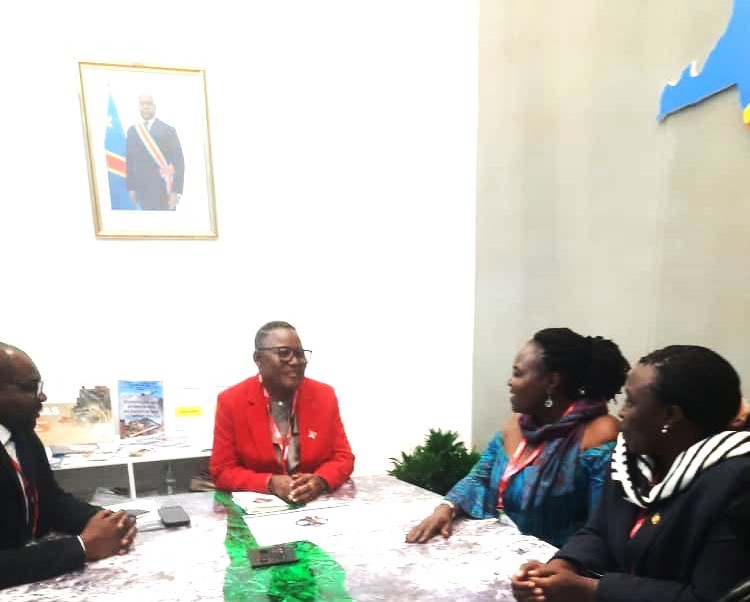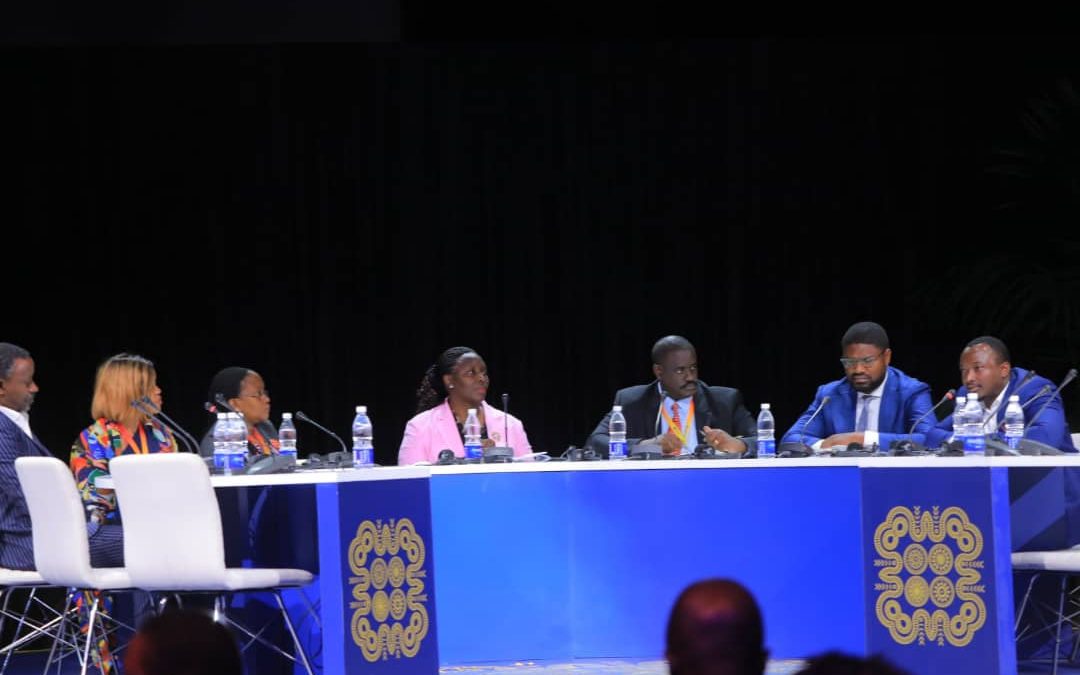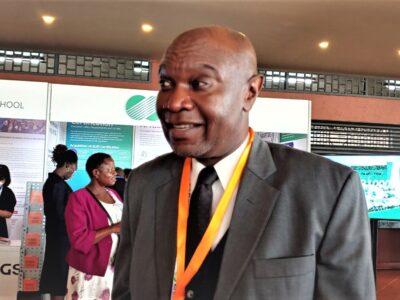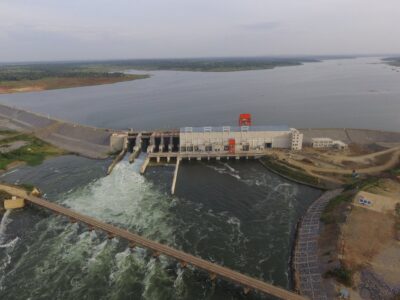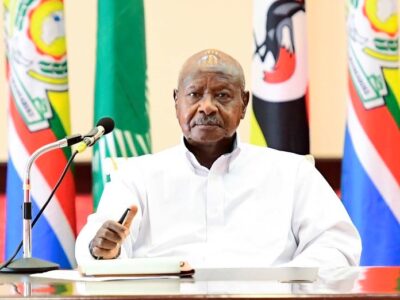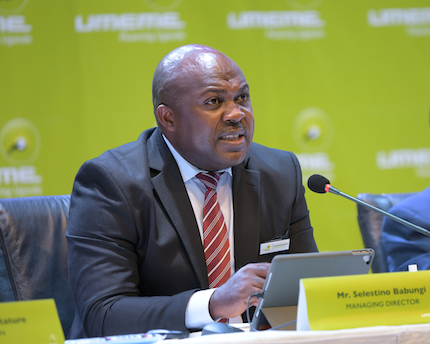
By Assad Mugenyi
In 2020, Umeme, Uganda’s largest power distributor, unveiled an $83.3 million capital expenditure plan that was meant to address six critical areas of the company’s business that year.
According to Selestino Babungi, the company’s managing director, these vital areas included addressing energy losses and improving operational efficiencies, addressing load demand growth and tackling power supply reliability.
Others were power generation evacuation and supply, network systems automation and network protection and security.
That 2020 plan was part of a larger $450m investment agenda that started in 2019 and was to run till 2025 targeting grid connections growth, increasing demand and reliability of supply and driving efficiencies. This was all in line with the government of Uganda’s Electricity Connections Policy of 2018-2027.
But this month’s announcement that the state will not be renewing Umeme’s 20-year electricity distribution concession beyond March, 2025, begs the question: ‘Will the company still go ahead with the scheduled investments?’
According to a company statement reacting to the non-renewal decision, Umeme says that honouring its contractual obligations until the contract expires was non-debatable, noting:
“The company remains committed to performing its obligations as per the existing concession agreements and will continue to operate and maintain the electricity distribution system in line with prudent utility practice to ensure continued service delivery through to the end of the concession.”
In fact, not so long ago, the company spokesperson, Peter Kaujju had told this website as much, in response to our queries linking the recurring electricity blackouts nowadays to the uncertainty over Umeme’s concession renewal.
“That’s not true. We have 2.9 months of the current concession (outstanding) and work as per the terms of the agreement is going on normally. Umeme has a workforce of 3,000 direct employees and about 6,000 contract employees who are all very busy with work,” Kaujju had said, adding that the company was spending averagely $40 million in capital expenditure annually to ensure the electricity distribution network was never affected.
Kaujju instead blamed the increasingly regular electricity outages on vandalism, stating that Umeme’s routine maintenance works only affect particular routes when they happen and that customers are always notified in advance.
“Ugandans need electricity to run different activities and our mandate is to run a reliable network – that is our commitment. However, vandalism is a huge challenge to the sector and the economy in general. The cost of none-supply as a result of vandalism is too high,” Kaujju added.
Loans, Buyout
Umeme employs lots of debt when financing its investments, this means it is going to find it difficult to close any loan negotiations following the recent developments.
And even when the loans are approved the interest rate will be much higher than before because of the short repayment period left.
High interest rates could see the tariff increase.
The company’s investments are preapproved by the Electricity Regulatory Authority (ERA) – which ratified $34m under capex for 2022.
But could the company slash its capex going forward seeing that without a concession renewal, it is no longer incentivized enough to invest more?
That is what some industry observers have predicted.
“Umeme’s capital expenditure is likely to steadily decline going forward especially in the non-recoverable expenditures like corporate social responsibility (CSR) activities. Remember, the company recovers its annual investment expenditure through the electricity tariff. So the recovery of the 2022 investments should ideally start in 2023; but unfortunately, the recoveries for the previous years could also still be running,” said an energy expert who preferred anonymity so as to talk freely.
Such a challenge could prompt ERA to increase the tariff to allow for the capex to be recovered within the remaining period of the concession agreement, he adds.
Diana Nambi, the regulator’s spokesperson, is however confident that Umeme will honour its commitments till the last day of the concession.
“ERA expects Umeme to honour all its obligations as entailed in its license instruments to ensure that consumers enjoy a good quality of power supply,” she says.
Adding, “For any investment (expenditure} not recovered by March 2025, Umeme will be compensated by government with a sum determined and verified by the Auditor General.”
The government is apparently already budgeting for the buyout amount at the expiration of the concession agreement.
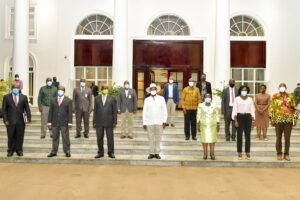
Umeme officials pose with President Museveni at State House, Entebbe in October, 2020 after a meeting to discuss the extension of the company’s contract
Nambi has also ruled out any tariff hikes targeted towards recovering Umeme’s capex going forward, clarifying that it is only the prevailing macro-economic parameters at any one time that determine the electricity charges whenever they are fixed on a quarterly basis.
“The tariff path cannot be determined now. ERA has to wait for the actual periods and their prevailing circumstances to determine the charges,” she said.
While Umeme is expected to fulfill its capex obligations – with targets set by the regulator that they must meet (or else they register a non-compliance) – the risk remains that the company may currently not be incentivized enough to invest.
“Of course to mitigate this risk, the government will also commence investment in the concession through the Uganda Electricity Distribution Company Limited (UEDCL),” said an official with the Ministry of Energy and Minerals Development, who also declined to be named because he is not authorized to speak on behalf of the ministry.
The worry for many consumers in Uganda will be whether the government has the financing needed to meet these demands.
An economy still recovering from the after-effects of an extended Covid-19 related lockdown and the global economic slowdown as a result of the Russia-Ukraine conflict, has seen the government struggle to pay suppliers and its workers for extended periods.
In an interview with this website recently, Irene Bateebe, the permanent secretary in the energy ministry, said that about $4 billion was needed to invest in the transmission and distribution networks to ensure universal electricity access by 2030.
As such, the transmission network – which has largely been an exclusive responsibility of the government – has since been opened up to private players to supplement public funding.



